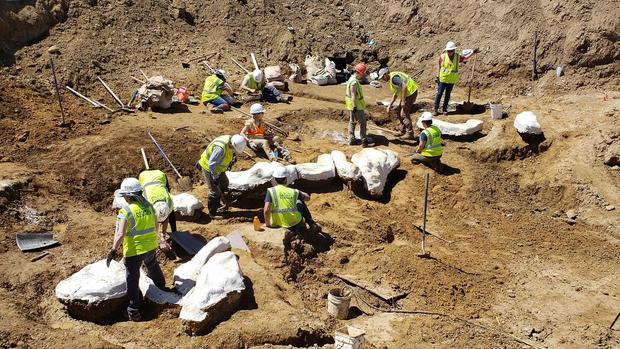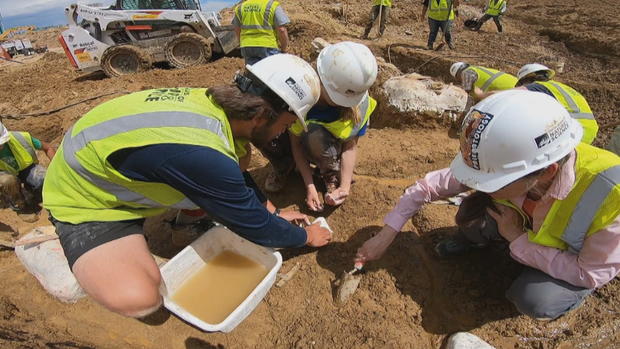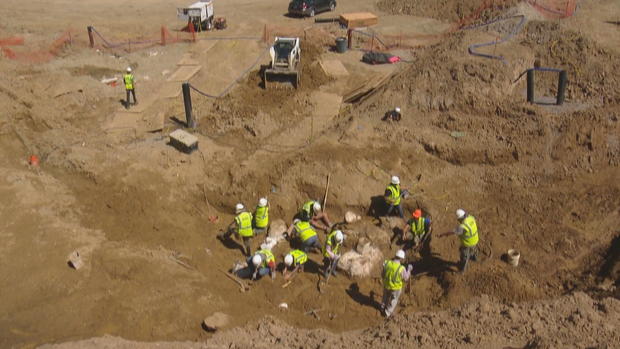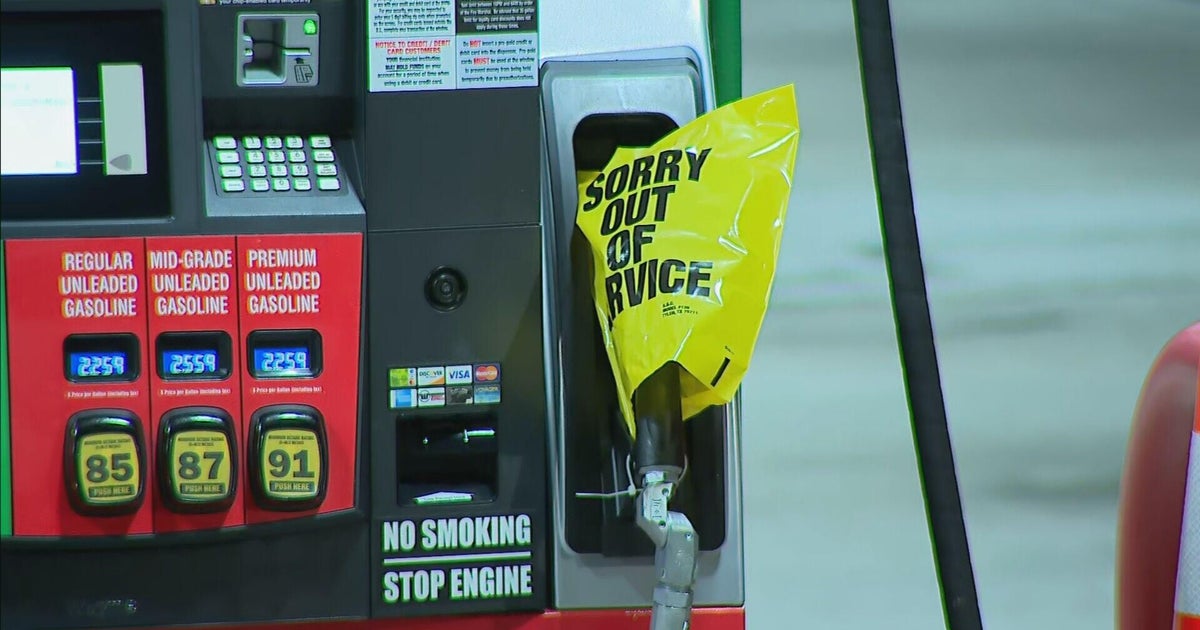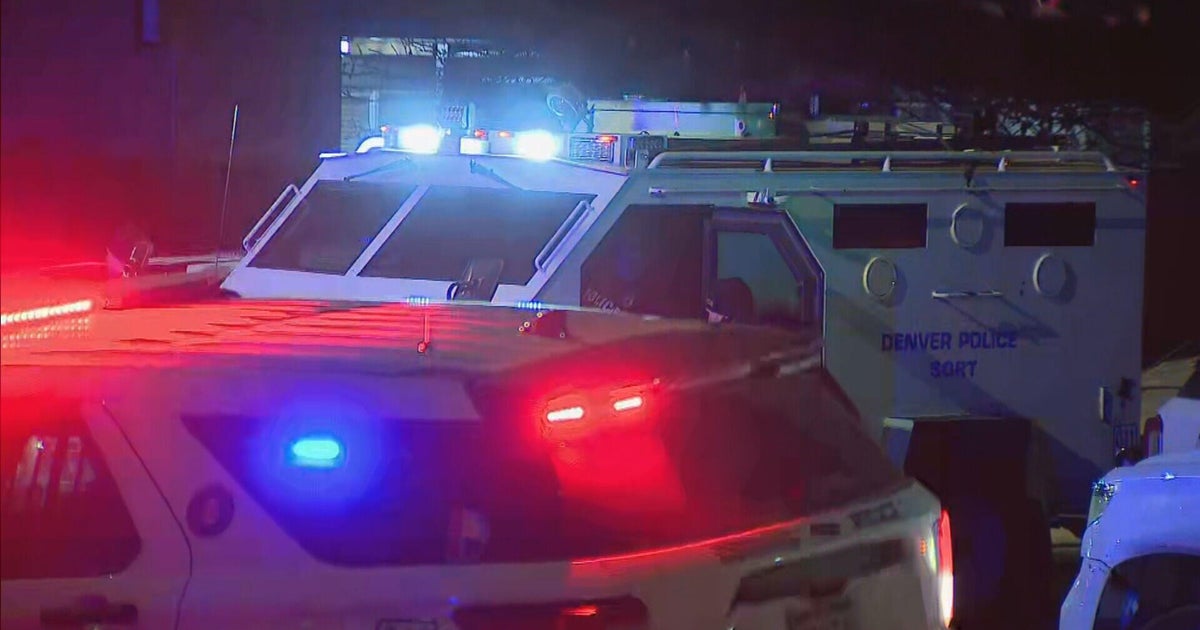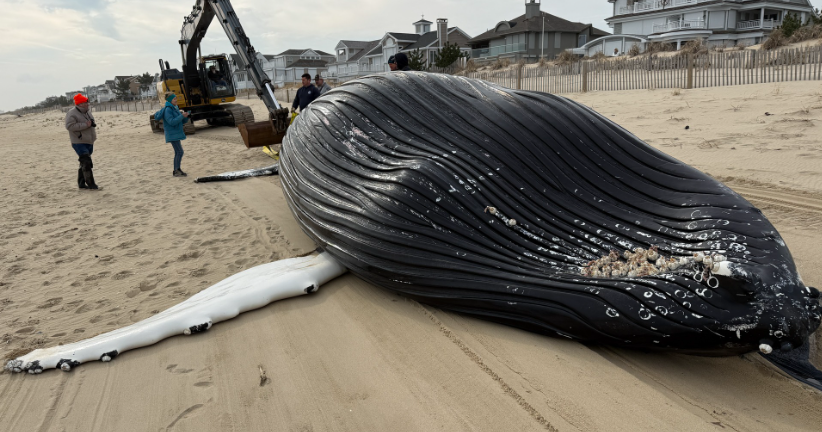It's A Triceratops! Dino Bones Found In Highlands Ranch Belong To 'Pretty Big Triceratops'
HIGHLANDS RANCH, Colo. (CBS4) - Paleontologists with the Denver Museum of Nature and Science confirmed that the fossils discovered at a Highlands Ranch construction site are the bones of a large triceratops. The museum had an idea what the fossils might be but experts officially confirmed the find on Thursday.
"A few weeks ago, all of this was just underwater, so it was almost impossible to identify what anything was exactly. But cleaning things off in the lab, we feel confident that it is a triceratops and not only that, it's a pretty big triceratops. It's an adult size, the bones we've been working on are pretty massive for the type of animal it is," said Natalie Toth, the chief fossil preparator for the Denver Museum of Nature and Science.
Toth and her team expected to be finished excavating by early June but she says every day, they encounter new pieces of the dinosaur.
"I think initially when we found a few bones scattered we thought, 'Oh, we'll wrap this up in just a couple weeks' and here we are. End of June and we're still finding more bones! Still taking more bones out of the ground!" Toth laughed.
WATCH: Dinosaur Fossils Found In Highlands Ranch Being Moved to Museum
Toth had a hunch back in May when she first stepped onto the sight to investigate.
"We said 'Yep! This is worth it! We're going to do this!' and I would've never, ever, thought that it would've turned into something this incredible."
While the trove of fossils is a good delay to encounter, Toth says they have had their fair share of bad delays.
Afternoon storms combined with a natural aquifer pouring into the dig site, made for a very messy endeavor.
"Back in mid-May, we were getting snowstorms, hail storms, sleet storms and then even now, it's raining now, not only do we have water coming from the earth, we have water coming from the sky which has made things so challenging- but we're working around it!"
Despite the fact that the entire dig site is supported by sump pumps, Toth can't help but laugh; it's all part of the experience and it's one she's extremely passionate about.
"The past is the key to the present, right?" Toth continued, "The more that we can learn about our history, about earth's history, about how ecosystems have changed overtime, that can help inform everything that we know about the earth today."
Toth initially thought Friday might be her team's last full day of digging but was hesitant to say for sure. There are still more bones to be found. As of Thursday night, she was still hoping to discover a horn or identify one from the pieces back at the lab.

